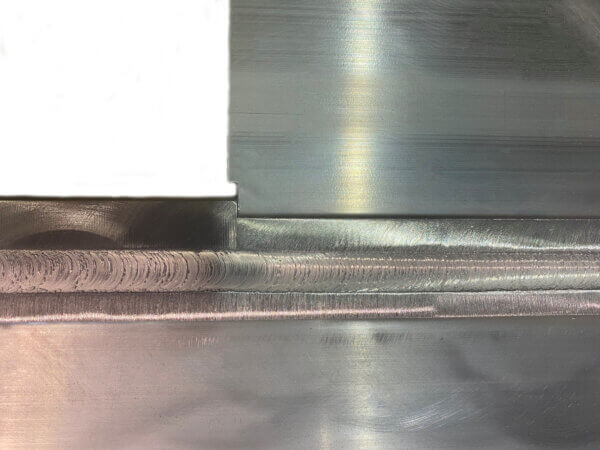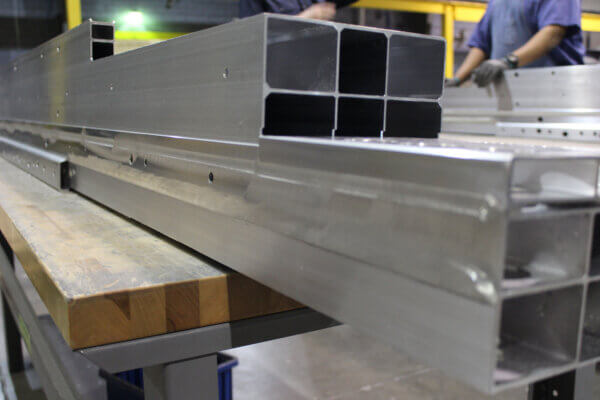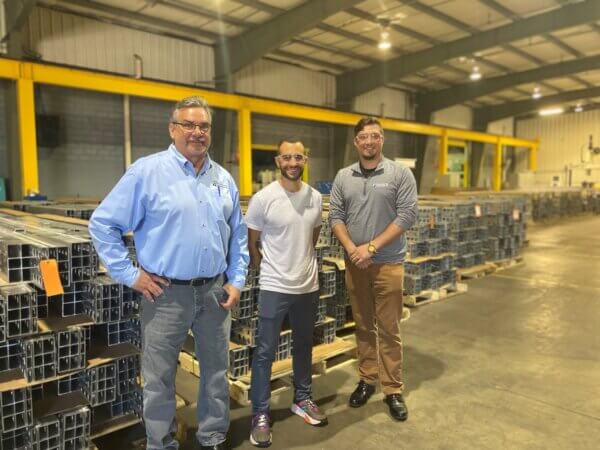SCALING UP FOR A NEW CHALLENGE
New product development programs can be challenging, but they can also present significant opportunities for companies that are willing to invest the time and resources necessary to bring a new product to market. As Rivian launched their new electric delivery vehicle program, one of their top challenges was to manage the stringent safety requirements and specifications. This necessitated an innovative welding process that very few suppliers could execute: Friction Stir welding.
Friction Stir Welding (FSW) is a solid-state joining process that uses frictional heat and pressure to join materials without melting them. FSW produces a high strength weld with a fine grain structure that resists fatigue stress. Rivian initially considered other welding technologies, but FSW was the best option based on their safety and specification requirements. As their supply team researched FSW suppliers, they determined MTI would be a good company to reach out to.


Pictured above is Rivian’s new part assembly for one of their electric vehicle programs.
COMPETENCE, CONFIDENCE & TRANSPARENCY
Although Rivian needed to work with a few different suppliers to meet demand initially, there were several things that started to set MTI’s Manufacturing Services apart from the rest. As Emmett Hassen, Rivian’s Senior Manager of Supply Chain Program Management, recalls, “I was on a late call with Jacob Smith, MTI’s General Manager of Manufacturing Services, early on in the project to develop a weekly forecast that would cover 36 weeks of production. This was not an easy task. Jacob’s ability to discuss, down to the minute, every step that made up the current cycle time, hours in a shift, down time, shifts per day, days per week was unmatched. He knew the product and process better than anyone.”
As the partnership evolved, and MTI consistently achieved roadmaps to ramp up production ahead of schedule with better efficiency, Rivian soon realized they found the strategic partner they were looking for. Each time MTI was challenged to find ways to increase throughput, the Manufacturing Services team pulled together and leveraged their LEAN skillset to find additional efficiency gains over several months. MTI continues to identify opportunities, making sure Rivian is getting the best part with the shortest cycle time.
From the very beginning of the project, Tom Budd, MTI’s Solutions Manager recalls, “We took a collaborative approach and regularly shared innovative ideas to keep the program on pace with demand.” This project also involved the production part approval process (PPAP) which is quite common in the automotive industry. The intent of the PPAP is to prove that incoming components, the MTI FSW joining process, and post-weld processed parts are very consistent and meet the required quality and production process standards before scaling them for production.
MTI’s large panel FSW production machine is equipped with dual heads [an upper and a lower weld head] that can be used independently or in unison for extrusions or panels that require both a top and bottom weld on the part. Jacob Smith added, “This unique feature enabled us to design new tooling that allowed both welds to happen simultaneously which eliminated the need to unclamp and re-fixture the part to make the second weld, saving both time and money. We were able to consistently get equipment up and running on time while also delivering additional efficiencies for production.”

Pictured from left to right: Tom Budd, MTI’s Solutions Manager, Emmett Hassen, Sr. Manager Supply
Chain Program Management at Rivian, and Jacob Smith, MTI’s General Manager of Manufacturing Services
There could have been alternative designs, but those would have required compromise on important features and ultimately impacted Rivian customers. “MTI understood the goal of the project and did everything they could to maximize output, never overselling on timing or commitments,” recalled Emmett. With every step, MTI was able to increase productivity while maintaining quality.
The working relationship between Rivian and MTI remains strong as the project’s scope has since expanded to include post-weld processing steps. MTI continues to deliver against commitments and remains a valuable partner for Rivian as their vehicle program continues to grow.
- Read more about how contract friction welding can help make your project more efficient.
- Learn more about the Friction Stir welding process.

